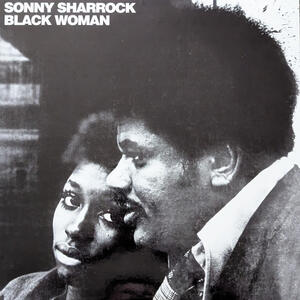
MOOR MOTHER
THE GREAT BAILOUT - (COLORED VINYL°
Moor Mother pulls no punches on her knockout ninth LP highlighting Britain’s role in the slave trade, starring guests Lonnie Holley, Mary Lattimore, Alya Al Sultani Kyle Kidd and more
‘The Great Bailout’ is a scalding, multi-layered reminder of how the British establishment passed the buck to taxpayers - including the Windrush generation, and their descendants - in their compensation of slave owners following the 1835 Slavery Abolition Act, whilst not a single penny went to the enslaved. Camae Ayewa aka Moor Mother draws upon her broadest range of styles and textures, from free jazz to bone cutting computer music, concrète collage and folk, to tell an arresting story that implicitly hits at the roots of capitalism and the political chicanery of the American and European ruling classes.
Poetically parsing history thru a heavily researched and richly imaginative musical prism, Ayewa skillfully highlights the ongoing PTSD of her people and a systemic violence toward them over generations. The music is notably arranged with more space than usual, staging her sound designs in a more theatrical or radioplay style between the beatless, elegiac rumination of ‘Guilty’ featuring a poignant Lonnie Holley performance, thru a noir-jazz subversion of the UK national anthem, to the mighty drone traction of ‘Compensated Emancipation’, an almost Ronce-like twist of grotesque ASMR in ‘Death by Longitude’, and the phosphorous burn of ‘Liverpool Wins’, before returning to avant-jazz-blues-folk in ‘South Sea’ ft. Sistazz of the Nitty Gritty. An extraordinary album from any perspective, it can perhaps also be taken as warning that the UK’ ruling classes have covertly turned their colonial strategies inward post-Brexit. The artist’s text is below so we don’t get it twisted.
““Research is a major part of my work, and researching history - particularly African history, philosophy and time - is a major interest,” Moor Mother explained. “Europe and Africa have a very intimate and brutal relationship throughout time. I’m interested in exploring that relationship of colonialism and liberation, in this case in Great Britain.”
So what is the terrain we are invited to navigate?
Think: two Acts of Parliament: the 1833 Slavery Abolition Act that established a four-year period of ‘apprenticeship’ during which the enslaved in the British Caribbean would transition from being ‘slaves’ to being free. And the 1835 Slavery Abolition Act – a loan that allowed the British Government to borrow £20 million [£17 billion in today’s money] with which to ‘compensate’ 46,000 slave owners who were losing their ‘property’ because of the legal abolition of slavery. A loan that was one of the largest in history. A loan that equaled 40% of the Treasury’s annual income. A loan that was only finally paid off in 2015. A loan that all payers of tax in the UK helped to pay off — which means that all those descendants of the once enslaved, including the so-called Windrush Generation, also helped to pay off.
Think: British Government hubris and historical inaccuracy. “Here’s today’s surprising #FridayFact. Millions of you helped end the Slave Trade through your taxes,” announced The Treasury in a Tweet on February 9th, 2018. It wasn’t for the ending of the trade; it was for the ending of ownership of black life that taxpayers helped pay for. Think: Not one of the enslaved received a penny in the form of compensation.
Think: two British Prime Ministers – William Ewart Gladstone, Prime Minister on four occasions between 1868 – 1894, and David Cameron 2010 – 2016, both of whose ancestors received ‘compensation’.
Think: all of this through the prism of two Acts and the histories they encode, and you know the terrain of ‘The Great Bailout’. “Displacement and its effects are not discussed enough,” Moor Mother says. “The PTSD of displacement should be a focus, and as we have the opportunity to learn about things happening in the world, we also have the opportunity to learn about ourselves. We’ve been through so many different acts of systematic violence.”
Evocative of the multiple echoes on Bailout, there’s one here. Speaking on the release of her 2017 debut album Fetish Bones, Ayewa, said: “We have yet to truly understand what enslavement means, what it does to people. It’s programmed within us, there’s no way to escape it.”
In thinking about that reckoning with haunting and material indebtedness, with truth searching, she made it clear that her vision stretched far and wide, not restricted to the USA alone because she doesn’t see the people of the African diaspora as separate, just dispersed. As she told me, “I have a hunger to meet each other all over the world,” with London being among the key stopping points. But first where to find people. “I’d been to London a few times and couldn’t find things — like where were all the people?” She said. It is an invisibility that is an effect of the “taxpayers of erasure,” until she headed south to Brixton and she saw one of the places where we are.
Now we are oriented, travelers, let’s enter the portal.”









